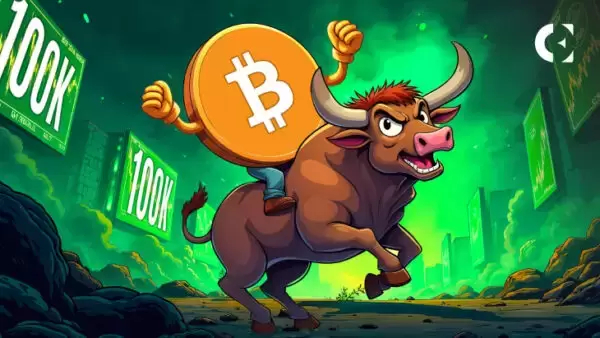 |
|
 |
|
 |
|
 |
|
 |
|
 |
|
 |
|
 |
|
 |
|
 |
|
 |
|
 |
|
 |
|
 |
|
 |
|
分散的财务(DEFI)部门是加密项目的价值应计和收入创造收入的最大驱动力之一,但其复杂性通常会使用户纠结

The decentralized finance (DeFi) sector is among the biggest drivers of value accrual and revenue creation for crypto projects.
分散的金融(DEFI)部门是加密项目的价值应计和收入创造收入的最大驱动力之一。
However, its complexity often leaves users tangled in a web of blockchains, bridges, wallets and tokens.
但是,其复杂性通常会使用户纠结于区块链,桥梁,钱包和令牌。
A technical update by Hyperliquid is making that process easier for both developers and users, with the direct linking of tokens on HyperCore and HyperEVM platforms now being possible.
Hyperliquid的技术更新使开发人员和用户都可以更轻松地进行该过程,而现在可以使用HyperCore和HypereVM平台上的代币链接。
HyperCore is its native platform for spot assets (think tokens you can trade directly), and HyperEVM, an Ethereum Virtual Machine (EVM) network that executes smart contracts on Ethereum.
HyperCore是其现货资产的本地平台(请考虑可以直接交易的代币),而HypereVM是一种以太坊虚拟机(EVM)网络,该网络在以太坊上执行智能合约。
Tokens on HyperCore, dubbed “Core spot,” can be linked to their counterparts on HyperEVM and are called “EVM spot.” Once linked, users can transfer them using simple actions — like a “spotSend” on HyperCore or a standard ERC-20 transfer on HyperEVM.
在HyperCore上的令牌,称为“核心点”,可以与HypereVM上的对应物相关联,被称为“ EVM斑点”。链接后,用户可以使用简单的操作转移它们 - 例如HyperCore上的“ Spotsend”或HypereVM上的标准ERC-20转移。
Linking a core spot token to an EVM spot token isn’t automatic. The process starts with the token’s “spot deployer,” or the entity behind it, which ensures the token’s supply matches up on both sides of the transaction.
将核心点令牌链接到EVM点令牌不是自动的。该过程始于令牌的“点部署者”或其背后的实体,这确保了令牌的供应在交易两边都可以匹配。
Then, they send a “spot deploy action” to HyperCore, proposing an ERC-20 contract on HyperEVM to pair with their token.
然后,他们向HyperCore发送了“现场部署行动”,提议在HypereVM上获得ERC-20合同,以与他们的令牌配对。
Next comes verification. If the EVM contract was deployed directly by an individual, they confirm it with a specific transaction nonce (a unique number assigned to each transfer on a blockchain).
接下来是验证。如果EVM合同是由个人直接部署的,他们将使用特定的交易nonce(一个唯一的数字分配给区块链上的每个转移)。
If it was deployed by another contract (say, a multisig for added security), the contract’s first storage slot must point to the HyperCore deployer’s address. Finally, a “finalize” action locks it all in place — ensuring both sides agree on the link.
如果它是由另一个合同部署的(例如,添加安全性的Multisig),则该合同的第一个存储插槽必须指向HyperCore Deployer的地址。最后,“最终确定”动作将其锁定在适当的位置 - 确保双方都同意链接。
Allowing linking lets users tap into Ethereum’s DeFi ecosystem — such as lending, borrowing, and trading — without leaving the Hyperliquid ecosystem entirely.
允许链接使用户可以利用以太坊的Defi生态系统(例如贷款,借贷和交易),而无需完全离开超流动生态系统。
Why Does it Matter?
为什么重要?
But how does that matter? It’s because moving tokens between ecosystems isn’t a straightforward process.
但是那怎么重要?这是因为在生态系统之间移动令牌并不是一个简单的过程。
Take Ethereum as an example, with billions locked in protocols like Aave or Uniswap. But if someone wants to send a token from another network, say Solana, they need a bridge — a third-party service that locks your tokens on one side and mints a wrapped version on the other. That comes with a security risk, as bridges remain one of the most exploited blockchain-based services in recent years.
以以太坊为例,数十亿个锁定在AAVE或UNISWAP等协议中。但是,如果有人想从另一个网络(例如Solana)发送一个令牌,那么他们需要一座桥梁 - 第三方服务将您的令牌锁定在一侧,并在另一侧造成包装版本。这会带来安全风险,因为桥梁仍然是近年来基于区块链的最受利用的服务之一。
The above friction exists even within Ethereum’s ecosystem, as moving assets between its mainnet and layer 2 blockchain (such as Optimism or Arbitrum) isn’t always seamless.
上述摩擦甚至在以太坊的生态系统中也存在,因为其主网和第2层区块链之间的移动资产并不总是无缝的。
Hyperliquid’s approach is different from just bolting on a bridge. HyperCore is a high-speed, purpose-built platform for spot trading, while HyperEVM is an EVM-compatible layer that taps into Ethereum’s DeFi toolkit.
Hyperliquid的方法与仅在桥上螺栓固定不同。 HyperCore是一个用于现货交易的高速,专门构建的平台,而HypereVM是EVM兼容的一层,可介入以太坊的Defi工具包中。
By letting tokens move directly between them — without a third-party intermediary — developers can create products that cut out the technical chops required to move assets (which is easy for heavy crypto users, but may be challenging for beginners).
通过让令牌直接在没有第三方中介的情况下直接移动 - 开发人员可以创建削减移动资产所需的技术碎片的产品(对于重型加密用户来说很容易,但对于初学者来说可能具有挑战性)。
Tokens like HYPE, HyperEVM’s gas token, don’t need a separate ERC20 contract to work on both sides. Send HYPE from HyperCore, and it lands as native gas on HyperEVM. Send it back to HyperCore via a system address (0x222), and it’s credited instantly based on an event log.
HypereVM的hyperevm的气体令牌等令牌不需要单独的ERC20合同来在双方工作。从HyperCore发送大肆宣传,并在HypereVM上作为天然气体降落。通过系统地址(0x222)将其发送回HyperCore,并根据事件日志立即将其记入。
It’s not perfect just yet; however, Hyperliquid warned in its technical documents that risks of unverified contracts or supply mismatches exist as of Tuesday.
这还不是完美的;但是,超流动性在其技术文件中警告说,截至周二,存在未验证的合同或供应不匹配的风险。
免责声明:info@kdj.com
所提供的信息并非交易建议。根据本文提供的信息进行的任何投资,kdj.com不承担任何责任。加密货币具有高波动性,强烈建议您深入研究后,谨慎投资!
如您认为本网站上使用的内容侵犯了您的版权,请立即联系我们(info@kdj.com),我们将及时删除。
-

- XRP和Yeti Ureo(Yetio)捕获了2025年的加密货币市场
- 2025-04-01 17:20:12
- 2025年的加密货币空间具有弹性,几种加密货币的受欢迎程度越来越高。
-

-

- New Analysis说
- 2025-04-01 17:15:12
- New Analysis说,随着交换流量为多年低点,比特币(BTC)面对一个新的“合并区”。
-

- XRP今天的价格预测(4月1日)
- 2025-04-01 17:15:12
- 在最近的市场下滑期间,XRP价格已获得约2.05美元的支持,现在为2.10美元。
-

-

- 未来的世界代币(FWT)正在重新定义加密货币景观
- 2025-04-01 17:10:12
- 加密货币景观正在迅速发展,随之而来的是,投资者正在寻找超越比特币的下一个大机会。 Nexaglobal正在加紧重新定义
-

- 以太坊(ETH)价格分析:试图从最近下降中恢复时与抵抗作斗争
- 2025-04-01 17:05:12
- 以太坊(ETH)是市场资本化的第二大加密货币,因为它试图从最近的下降中恢复,遇到了巨大的阻力。
-

- 通过收购8,888 BTC来加深其比特币投资策略
- 2025-04-01 17:05:12
- USDT Stablecoin的领先发行人Tether通过获得额外的8888 BTC,加深了其比特币投资策略
-

- 以太坊恢复了其作为DEX交易领先的智能合同区块链的头衔
- 2025-04-01 17:00:12
- 上个月,以太坊重新获得了头衔,成为领先的智能合同区块链分散交易(DEX)交易



























































